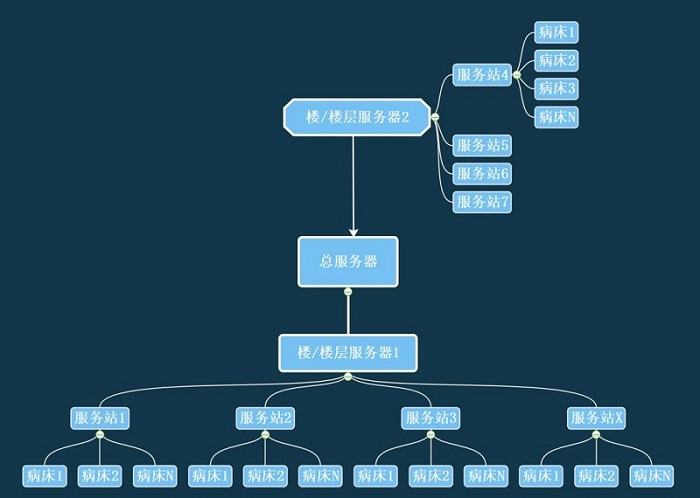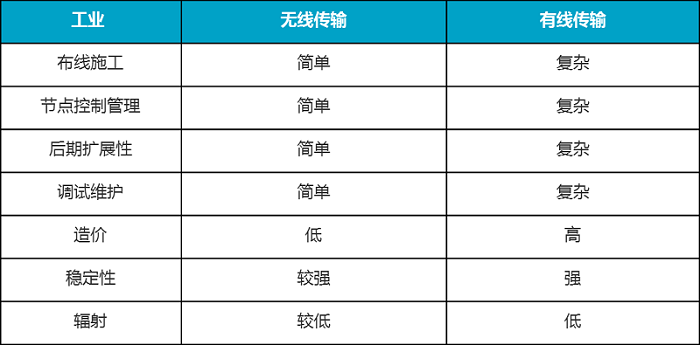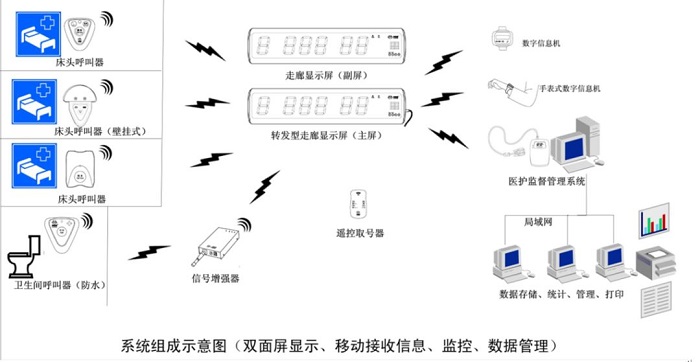Hospital management system is the core of smart medical care. It is an edge science integrating medicine, information, management, computer and other disciplines. Today we will explore how to use Internet of Things technology to manage it more efficiently.


The hospital management system is the necessary technical support and infrastructure for modern hospital operations. The purpose of implementing the hospital management system is to strengthen hospital management, improve hospital work efficiency, and improve medical quality with more modern, scientific, and standardized means, thereby Establishing a new image of a modern hospital is also the inevitable direction for future hospital development.
The hospital management system mainly consists of software platform, hardware platform and network design. Among them, the software platform has been modernized, scientific, and standardized after years of learning from developed countries, accumulation of experience in business management, and iteration of domestic technology, thereby achieving the purpose of improving hospital work efficiency and improving medical quality.
However, with the emergence of Internet of Things technology, although traditional hardware platforms and network designs are stable, if more new technologies, new equipment, etc. need to be modified and upgraded, the labor and economic costs will be relatively high. Moreover, the renovation process will cause inconvenience to hospitalized patients and the cost will be too high.
Hardware platform:
Hardware is the basis for system implementation. In the design plan, we take into account the various requirements and characteristics of system implementation, as well as the actual situation of the hospital. The hardware selection must meet the system requirements, take into account system performance, and take the highest cost performance as the principle. Make the system achieve the optimal and most economical solution.
1. Server (SERVER)
The main server is the heart of the system, and all workstations in the system must exchange information with it, so it must be fast, stable, and of reliable quality.
2. WorkStation
The selection of workstations is based on ensuring high-speed operation and high reliability of the network. At the same time, the specific actual situation of the hospital is taken into consideration to meet the system requirements and save limited funds for the hospital itself.
3. PRINTER
We choose printers mainly for fast printing speed, durability and low operating costs. The world famous printer manufacturer’s products fully meet its requirements.
4. Distribution power supply (UPS)
If the network is running when the power is interrupted, it may result in data loss, equipment damage and irreparable losses. Therefore, it is necessary to ensure uninterrupted operation of the machine, but only for a short period of time, and to sound an alarm.
Traditional network platforms mainly include:
1. Integrated wiring
Cables are the lifeline of computer networks and the arteries that transmit information. If the lines are damaged due to quality problems, the entire network will be paralyzed and stop working. Therefore, the integrated wiring scheme for building automation is adopted in the general design and strictly follows the technical requirements of integrated wiring to improve the quality and stability of the lines. At the same time, it can be used for language transmission, allowing users to freely choose. Depending on the site conditions, the cable can be connected to an RJ-45 socket on the wall, or an RJ-45 plug can be used to directly connect to the workstation, which facilitates maintenance and expansion.
2. Network equipment
Network devices are mainly switches (Switch HUB) and hubs (HUB), which are intermediate devices connecting the main server and workstations. The switch is the core device in the network. It provides switching fast connections between servers and workstations. There is also a hardware device in the network, which is the network adapter, also known as the network card, which is used to connect each workstation and cables. . Because the network card is the main device for connecting each workstation to the network, in order for the workstation to work stably, a network card with good compatibility and high reliability must be guaranteed.
3. Network management
We use the above network solutions to make full use of network resources and facilitate management and maintenance. In planning we make the workstations independent of each other, but connected to each other. That is, the operating status of one workstation does not affect the normal operation of other workstations, which improves the reliability of the network.


The traditional connection method is mainly wired connection with a switch (Switch HUB) and a hub (HUB) for network connection. The system is stable, but the corresponding construction costs, material costs, and maintenance costs are very high. And it is not conducive to later intelligent upgrades and transformations. Now new campuses, including hospitals, office buildings, etc., have begun to design plans and invest in wireless transformation. And when adding subsequent terminal devices, you only need to solve the product power supply problem to directly connect to the network and realize the interconnection of everything.
With the development of the Internet of Things industry, various wireless link methods have been verified in industry and are commonly used in civilian products.




1. The hospital adopts wired plus wireless transformation method
For example, try to keep the original network connection method as much as possible, but adopt wireless connection method when the distance is long and large-scale construction is not suitable in the patient’s resident area. In the overall network, the appropriate wireless connection method is selected based on the distance of the scene, the on-site environment, and the amount of data, which not only facilitates later upgrades but also greatly reduces costs.
2. Access to new terminal equipment
Patient information such as blood pressure, pulse, etc. now have more real-time monitoring methods. On-duty staff and attending doctors will also have more smart terminal display devices. It is convenient for doctors to understand the patient’s condition anytime and anywhere. Cable cannot meet such demand. With wireless access, you only need to solve the product function and power supply problems to achieve remote online detection. The hospital’s work efficiency has been greatly improved.